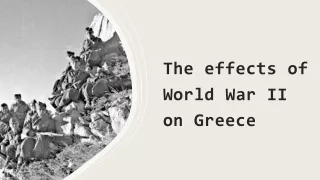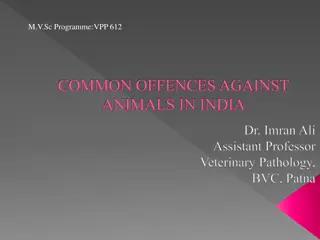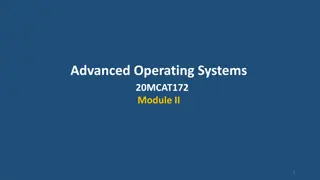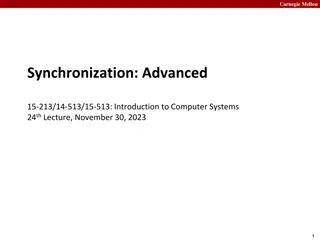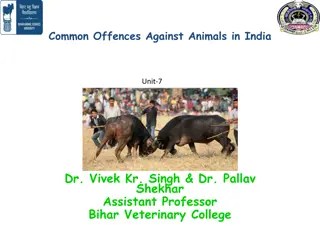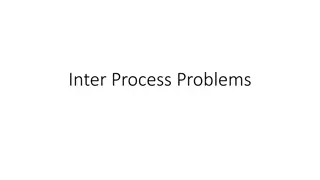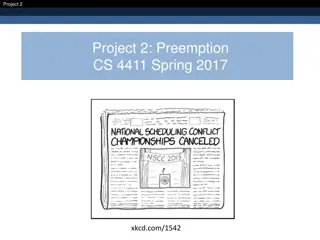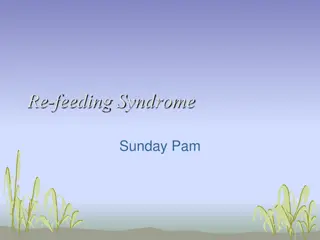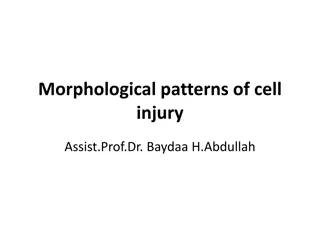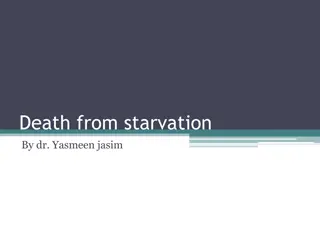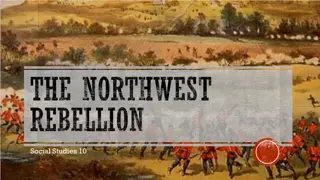The effects of World War II on Greece
During World War II, more than half a million Greeks perished from either hostilities, starvation, diseases or executions. \nOne million people\u00a0were left homeless, 160.000 buildings were destroyed and approximately 1.700 villages were completely wiped out.\nIt took many years for the country to
12 views • 5 slides
Common Offences Against Animals in India: Overview and Consequences
There are three common offences against animals in India: mischief, cruelty, and bestiality. Mischief involves killing, poisoning, or harming animals, punishable under IPC Sections 428 and 429. Cruelty includes acts like beating, overloading, and starvation, regulated by the Prevention of Cruelty to
0 views • 21 slides
Understanding Distributed Mutual Exclusion in Operating Systems
In distributed systems, the problem of mutual exclusion arises when multiple sites/processes need to access shared resources concurrently. Unlike in single-computer systems, distributed systems lack shared memory, leading to the need for communication-based approaches rather than shared variables li
0 views • 49 slides
Carnegie Mellon Synchronization and Computer Systems Lecture Updates
Carnegie Mellon's recent announcements include lab checkpoints and finals deadlines, as well as the release of an optional lab extension for the Shark File System. The lecture topics cover races, mutual exclusion, deadlock, semaphores, events, queues, reader-writer locks, starvation, and thread-safe
0 views • 43 slides
Common Offences Against Animals in India: Understanding Mischief, Cruelty, and Bestiality
Offences against animals in India encompass mischief, cruelty, and bestiality. Mischief involves killing, poisoning, and maiming animals, punishable under the IPC. Maiming makes animals permanently useless, often to harm owners. Cruelty includes beating, overloading, starvation, and other forms of a
0 views • 17 slides
Understanding the Impact of Semi-Starvation on Physical and Mental Wellbeing
Explore the repercussions of semi-starvation during journeys to the UK, including its effects on nutrition, physical health, and mental wellbeing. Learn about the signs of semi-starvation, interventions to aid young individuals, and who to contact for concerns. Discover evidence from studies like th
0 views • 14 slides
Understanding Lotka-Volterra Model for Predator-Prey Dynamics
The Lotka-Volterra model explores the intricate interactions between predator and prey populations, depicting oscillations in their sizes where the predator's peak lags behind the prey's. This model makes assumptions about exponential prey growth, predator starvation in prey absence, and unlimited p
0 views • 9 slides
Understanding Synchronization Methods in Computing
Exploring synchronization methods like mutual exclusion, deadlock, starvation, and hardware mutex support in computing. Learn about critical sections, preventing race conditions, and the challenges of synchronization. Consider the Test and Set method, its benefits and drawbacks, and the importance o
0 views • 24 slides
Understanding Classical Inter-Process Communication Problems
Classical Inter-Process Communication (IPC) problems such as the Dining Philosophers Problem and the Readers and Writers Problem are explored in-depth by Ali Akbar Mohammadi. The challenges, solutions, and non-solutions to these problems are discussed, shedding light on issues like starvation in con
0 views • 15 slides
Project 2: Preemption in CS 4411 - Spring 2017
Project 2 focuses on addressing issues of selfish threads, starvation, and interruption handling within multi-level feedback queue scheduling. The project introduces clock interrupts, alarms, interrupt handlers, and addresses the importance of performance optimization for handling shared data struct
0 views • 19 slides
Understanding Re-feeding Syndrome: Metabolic Alterations and Pathophysiology
Re-feeding Syndrome (RS) is a critical condition characterized by severe metabolic changes during the repletion of underweight or malnourished individuals. The syndrome's hallmark is severe hypophosphatemia, leading to multisystem complications. This summary delves into the biochemical basis of RS,
0 views • 25 slides
Supporting Emotional Wellbeing of Unaccompanied Asylum-Seeking Children
Current research highlights the increased likelihood of post-traumatic stress disorder, anxiety, and depression among Unaccompanied Asylum-Seeking Children (UASC). Through participatory action research, findings reveal challenges like disordered sleep, semi-starvation issues, loss of hope, and traum
0 views • 9 slides
Understanding Poverty and Solutions for a Better Future
Poverty is a global issue leading to human suffering, starvation, and economic disparities. It affects both industrialized nations and developing countries, prompting people to flee in search of a better life. To address poverty, ensuring abundance of resources like money, food, and shelter is cruci
0 views • 31 slides
Morphological Patterns of Cell Injury and Degeneration
This informative content discusses morphological patterns of cell injury, focusing on reversible cell injury or degeneration caused by intracellular and interstitial accumulations. It covers classifications such as primary changes in the cell, intracellular accumulation of water, fat, carbohydrates,
0 views • 18 slides
Understanding Death from Starvation and Cold: Mechanisms and Lesions
Starvation and cold can lead to death through specific mechanisms that affect the body's metabolism and tissue integrity. In cases of starvation, the body breaks down fat stores, leading to organ damage and eventual death. For cold-related deaths, exposure to extreme temperatures disrupts metabolic
0 views • 17 slides
The Northwest Rebellion and Its Impact on Metis and Plains Peoples
The Northwest Rebellion in Canada during the late 19th century saw significant challenges faced by the Metis and Plains Peoples. The Metis struggled with broken promises of land, sparking anger and a call for ownership rights. In contrast, the Plains Peoples faced starvation as they became reliant o
0 views • 14 slides
Legacy Fairness Enhancement in IEEE 802.11 Networks: Further Considerations
Investigating legacy fairness issues in IEEE 802.11 networks, this document explores methods to address throughput starvation of legacy stations due to enhanced Channel Clear Assessment (CCA) in High Efficiency (HE) stations. Two fairness methods, Legacy Frame Protection and PPDU Size Reduction, are
0 views • 9 slides
French Caribbean Contribution to WWII: Hidden Heroes and Untold Stories
Explore the untold stories of 4000-5000 men and women from French Caribbean islands who played a crucial role in the liberation of Occupied France during World War II. Learn about the challenges they faced, their resourcefulness in the face of hunger and starvation, and their escape to British islan
0 views • 16 slides
Causes of the French Revolution in 1789
The French Revolution of 1789 was sparked by a combination of social, administrative, political, intellectual, financial, and immediate causes. Feudalism, a rotten administrative system, absolute monarchy, intellectual influences from philosophers like Montesquieu and Rousseau, financial bankruptcy,
0 views • 10 slides
